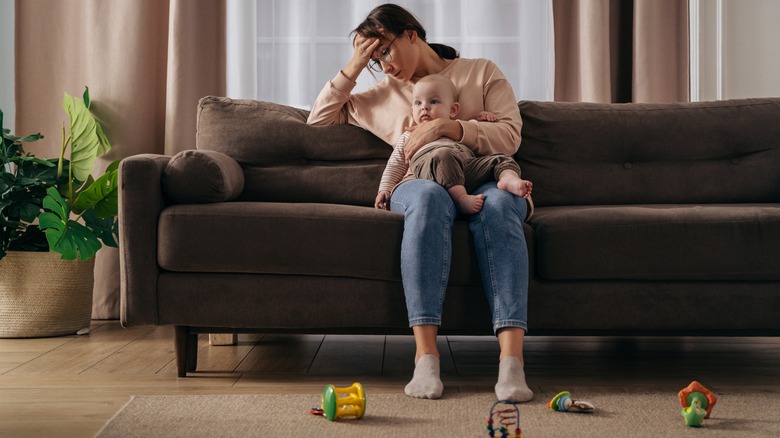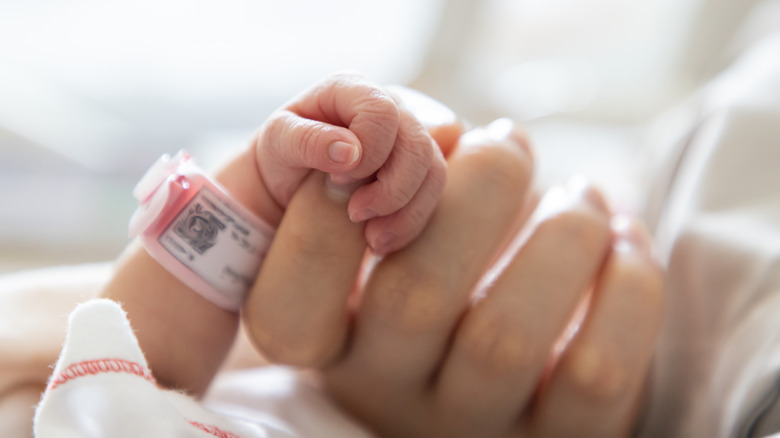What Mental Health Experts Want You To Know About Postpartum Depression
Postpartum depression is a type of depression that occurs after childbirth. According to the Cleveland Clinic, postpartum depression is a common and serious mental health condition that affects up to 1 in 7 new parents after giving birth. People with postpartum depression can experience a range of symptoms, including changes in appetite, crying frequently or for no reason, extreme sadness, difficulty focusing, loss of energy, suicidal thoughts, feeling worthless or guilty, and thoughts of hurting the baby.
Postpartum depression is not to be confused with the baby blues, which is a much less intense condition that only lasts about 10 days. Symptoms of postpartum depression, on the other hand, can last for weeks or even months. Believe it or not, postpartum depression doesn't just affect the person giving birth. It can also affect partners, surrogates, and even adoptive parents. That's because having a baby can cause a whole host of hormonal, physical, emotional, financial, and social changes, regardless of whether or not you gave birth, and any of these types of changes can contribute to postpartum depression.
Postpartum depression can affect babies
According to experts (via CNN), postpartum depression can even affect babies. Research has shown that the mental health of new parents can have an impact on the mental and physical health of children, as well. Simone Honikman, the founder and director of the Perinatal Mental Health Project in Cape Town, South Africa, told CNN that postpartum depression can prevent parents from seeking health services that are necessary for the well-being of both themselves and their children.
"There's a lack of appreciation of the fact that these mental health conditions do in fact impact physical health conditions directly and are very closely associated with a range of physical health considerations," Honikman added. This can potentially affect the weight and development of a newborn.
That's why doctors are calling for systemic change. Talking and educating people about mental health, reducing the stigma, and providing more resources and tools can help prevent new parents from going through postpartum depression alone, and get them the help they need. Moreover, experts note that many cases of postpartum depression can be prevented if health systems work on addressing risk factors such as poverty, domestic violence, and childhood trauma early on.


